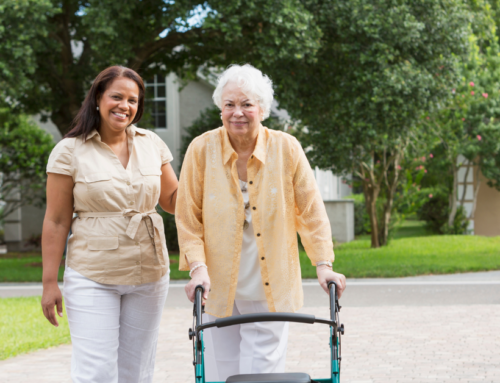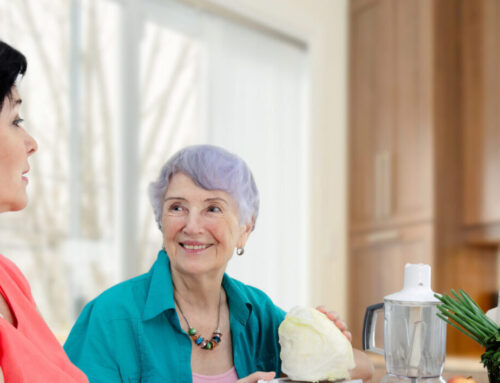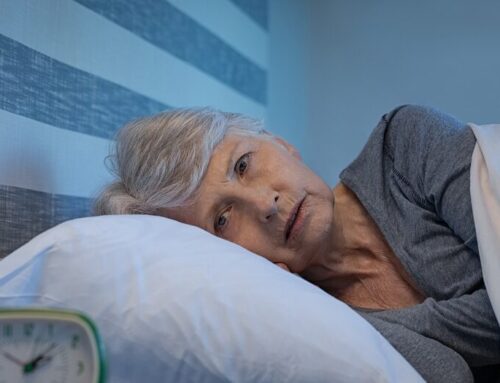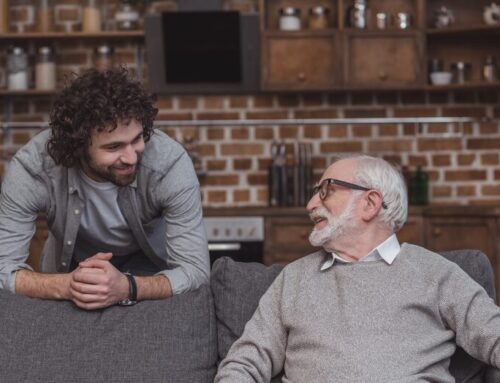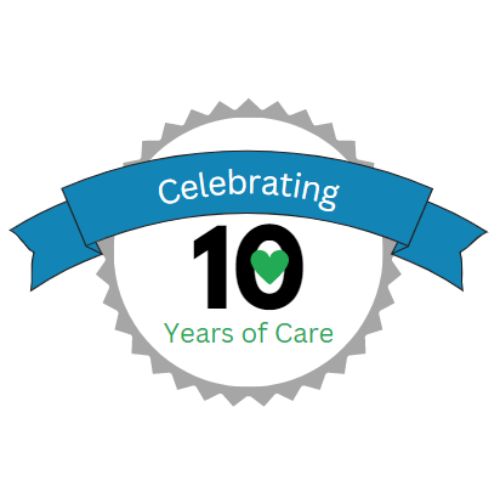It’s not always obvious when your elderly parent needs help at home. In fact, it’s especially hard for families to recognize the risks of their senior loved ones living at home alone. Seniors may feel obligated to hide their struggles so as not to be a burden. Alternatively, you could be overlooking the signs due to an overfamiliarity with the home. Whatever the case may be, it’s important to learn to recognize the risks of seniors living at home alone before an accident happens. By knowing what to look for, you can determine if your parent needs at-home caregiving assistance for the sake of their health and well-being.
Loneliness
Seniors living at home, especially alone, can feel very lonely as a result of the isolation. In fact, it’s been determined that almost two million Americans age 65 and over live at home alone and rarely (if ever) leave their homes. Any outings are usually limited to things like medical appointments. Make sure your elderly parent is getting enough social interaction, otherwise it could lead to more serious problems, like depression and/or anxiety.
Depression
Depression is a condition that is more common than you might think among seniors living at home. Studies have shown that depression affects between 25% and 33% of semi-homebound seniors and nearly 60% of totally homebound seniors. Depression can stem from social isolation, but it can also develop from other factors, too. So, how can you determine if your elderly parent is depressed? Depression is characterized by an overall loss of interest, appetite, energy and motivations. Keep an eye out for these and similar signs.
Anxiety
Seniors living at home alone are often at a higher risk of developing an anxiety disorder than those who have at-home assistance. Anxiety can result from feelings of unease, which is often higher in situations of social isolation. Like depression, anxiety is a condition linked to environmental stress. If you think your elderly parent might be suffering from anxiety, look for signs of insomnia, dry mouth, nausea, dizziness, or muscle tension. These and similar symptoms might indicate the need for more regular at-home assistance from a caregiver.
Malnutrition
One in four seniors suffers from malnutrition, especially when they live alone at home. Ideally, seniors should be able to shop for, prepare and consume (at least) three healthy meals a day like anyone else. However, since mobility is an issue for some homebound seniors, this might not be possible. How can you tell for sure that your elderly parent isn’t getting enough nutrition? Look for signs of spoiled food in the house, drastic weight loss and dehydration. These are clear signs that it’s time to enlist the services of an at-home caregiver.
Medication Mishaps
Studies have shown that the average senior takes about seven different prescription medications every day. With this in mind, it’s distressing but unsurprising that roughly 58% of seniors living at home alone either miss or overdose on their medications. This is a huge hazard that results could result in hospitalization and/or a number of health complications. If your elderly parent has trouble remembering if or how much medication was taken in a given day, getting help from a caregiver might be necessary.
Other Safety Hazards
One of the most overlooked dangers of seniors living at home alone is the condition of the home itself. A messy or unkempt home is can be especially hazardous to seniors— especially those with limited mobility. The littlest things like a loose rug or an exposed cord could make for tripping-and-falling hazards that poor eyesight might not catch in time. If you notice your parent’s home is cluttered, ask them if they feel safe. If your parent tries to hide injuries from you, it’s definitely time for a caregiver.
Seniors Living at Home with Help from Florida First
Seniors who are determined to live at home might do so for the sake of maintaining their independence and there is absolutely nothing wrong with that. However, that doesn’t mean that letting your elderly parent live at home alone is a good idea. Don’t wait for a traumatic event to tell you that your parent needs an at-home caregiver. At Florida First Senior Home Care, we can refer highly qualified professionals to take care of your loved one so he or she can continue to live comfortably and happily at home. For more information, please call us at 561-771-5980.


